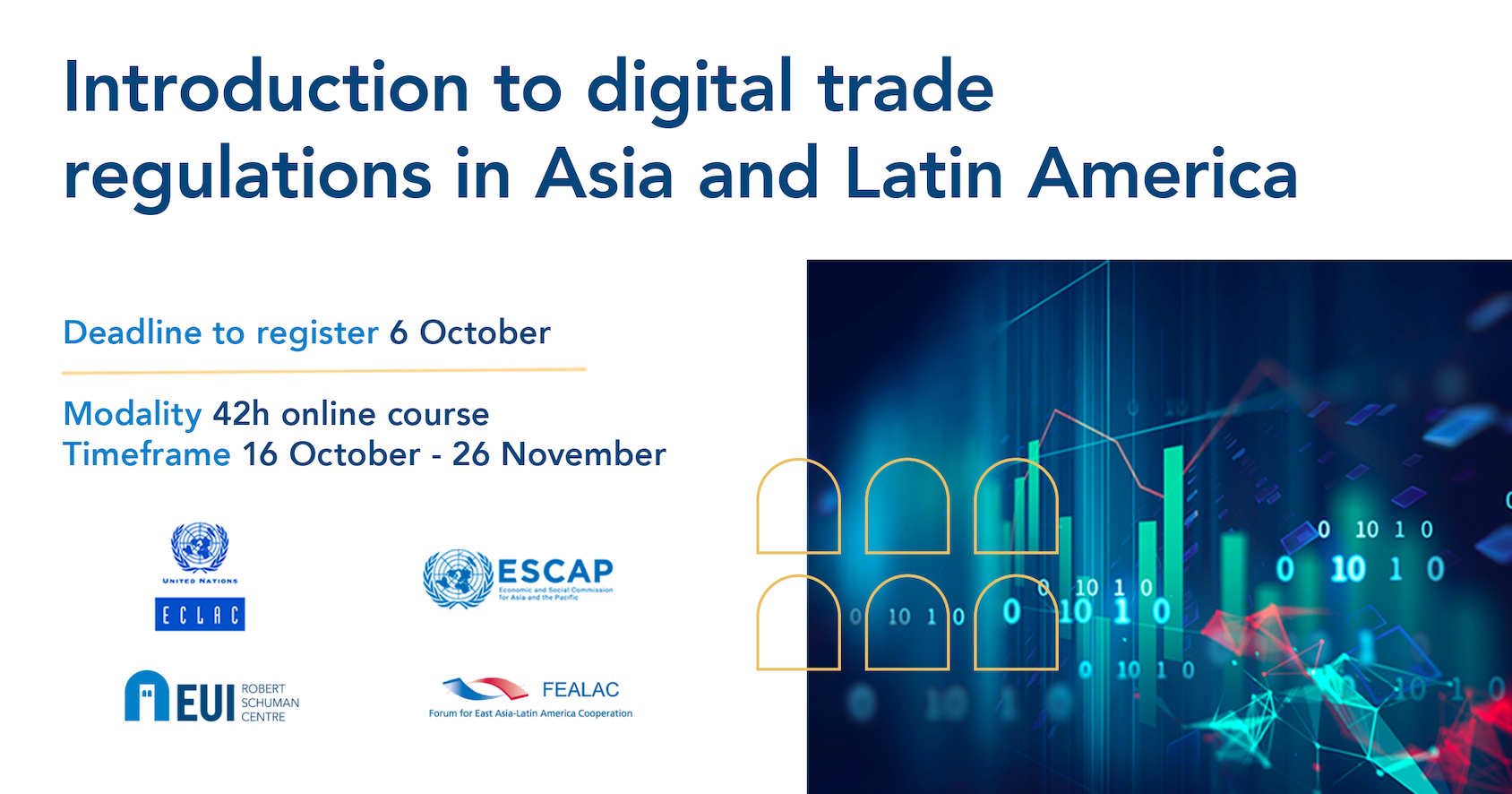News
Description
|
Course language |
English and Spanish |
|
Registration contact |
Alejandro Fredes |
This interdisciplinary course is designed for policymakers and researchers who want to develop a critical understanding of global digital trade regulations. The rise of digital trade, which covers trade in digital goods and online services, foreign direct investment in sectors relevant to the digital economy, and data movement, is a new reality that our economies are adjusting to. New digital technologies, such as 3D printing, big data, cloud computing, artificial intelligence, Internet of Things, and autonomous driving are creating new services and ways of working, which impact citizens, businesses, and governments. Regulating the digital revolution is proving exceptionally challenging, also given the pace at which it is evolving.
On the one hand, policymakers are applying policies designed for an ‘offline’ world to the new online world. On the other hand, they are designing policies to consider broad economic and non-economic concerns, including public security, law enforcement, national security, privacy, consumer protection, and free speech. The course will shed light on this topic by introducing the concept of digital trade and its regulations, highlighting the importance of informed policy-making decisions, including in the context of the recent negotiations of trade agreements.
Timeframe
The course takes place from October 16th to November 26th. The online meetings take place each Thursday. The course platform remains open until December 10th, so participants can complete the assignments to obtain their diploma.
Applications
This course is free of charge, but applicants must a) register here and b) send a letter of recommendation from their employer indicating how this course contributes to the institution and/or the person taking it. This letter should be sent to Alejandro Fredes (a.fredesparedes@gmail.com).
Applications will be received until October 6th. Applications received after this date will not be considered in the selection process.



